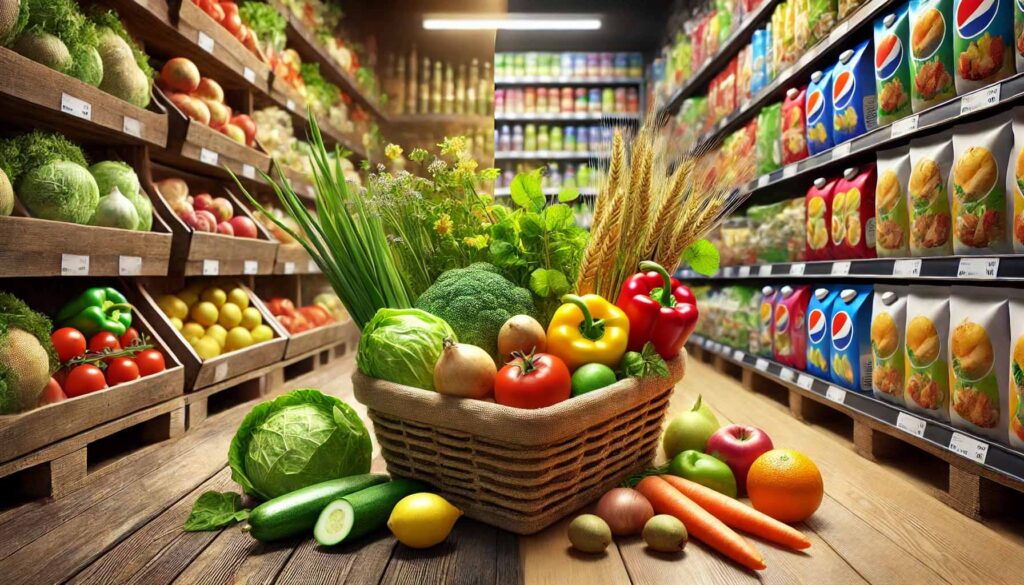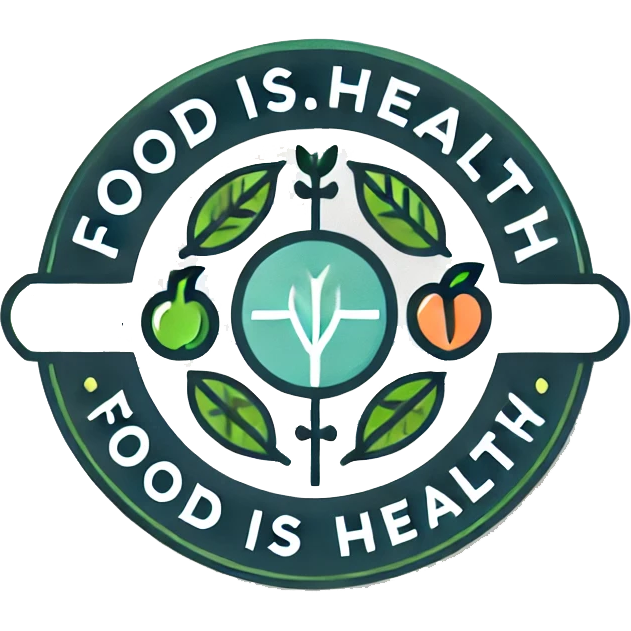When we think about the food on our plates, we often don’t consider the impact farming practices have on the environment. But the way food is grown and the methods farmers use can significantly affect the planet. Two primary types of farming are organic agriculture and conventional farming, each with distinct practices and environmental impacts. If you’ve ever wondered which one is more sustainable, this article will break down the differences and help you understand how each method affects the environment.

Understanding Organic Farming
Organic agriculture focuses on growing food without synthetic chemicals like pesticides, herbicides, or fertilizers. Instead, organic farmers use natural methods to improve soil health, control pests, and fertilize crops. This includes practices like crop rotation (growing different crops in sequence on the same land), composting, and the use of animal manure as fertilizer.
A key principle of organic farming is to work with nature rather than against it. Organic farms often use biological pest control, which means they introduce natural predators or beneficial insects to keep harmful pests in check. Organic farmers also prioritize maintaining biodiversity, which is essential for keeping ecosystems healthy.
Understanding Conventional Farming
On the other hand, conventional farming typically involves the use of synthetic chemicals, genetically modified organisms (GMOs), and industrial farming techniques. These farms often rely on chemical fertilizers to boost crop yields, pesticides to manage pests, and herbicides to control weeds. While this method can produce large amounts of food quickly and efficiently, it can also lead to environmental challenges.
Conventional farming also involves monoculture, where a single type of crop is grown over large areas of land year after year. While this can be efficient in terms of production, it can have negative effects on soil health and biodiversity.
Environmental Impact: Organic vs. Conventional Farming
Now that we understand the basics of organic and conventional farming, let’s dive into how each method impacts the environment.
1. Soil Health
One of the biggest differences between organic and conventional farming is how they affect soil health.
Organic farming practices, such as crop rotation and composting, help improve the structure and fertility of the soil. By avoiding synthetic chemicals, organic farms maintain healthy microbial life in the soil, which is crucial for plant growth. Healthy soil can retain more water, prevent erosion, and support long-term agricultural productivity.
Conventional farming, with its reliance on chemical fertilizers, can degrade soil health over time. Synthetic fertilizers can lead to a buildup of salts and nutrients in the soil, which can eventually reduce its ability to support crops. Continuous monoculture can also deplete the soil of essential nutrients, requiring more chemical inputs to keep yields high. Over time, this can create a cycle where the soil becomes less productive, and farmers rely more on chemicals to maintain crop production.
Winner: Organic Farming – Organic practices help maintain and even improve soil health, making it a more sustainable option in the long run.
2. Water Use and Pollution
Water is essential for farming, but the way it’s used and affected by farming practices can have big environmental consequences.
Organic farms tend to use less water because healthier soils can retain more moisture, reducing the need for irrigation. In addition, since organic farming avoids synthetic pesticides and fertilizers, it reduces the risk of water pollution. Runoff from organic farms is less likely to contaminate nearby rivers, lakes, and groundwater sources with harmful chemicals.
Conventional farming, especially large-scale operations, often relies on extensive irrigation, which can strain local water supplies. Furthermore, the use of synthetic fertilizers and pesticides can lead to chemical runoff, which pollutes water sources and harms aquatic ecosystems. This can result in problems like eutrophication, where excess nutrients in water lead to large algae blooms that deplete oxygen levels and harm aquatic life.
Winner: Organic Farming – Organic farming is better for water conservation and causes less pollution, making it a more environmentally friendly choice.
3. Biodiversity
Biodiversity refers to the variety of plant and animal species in an ecosystem. A diverse ecosystem is more resilient and can better withstand environmental stresses.
Organic farming practices actively promote biodiversity. For example, organic farmers may plant cover crops (plants grown to cover the soil rather than for harvest), which provide habitats for beneficial insects and wildlife. Crop rotation also helps prevent the depletion of certain nutrients in the soil and supports a wider variety of organisms. Organic farms are often home to more species of birds, insects, and plants compared to conventional farms.
In contrast, conventional farming practices, particularly monoculture, reduce biodiversity. Growing the same crop year after year can lead to the decline of soil organisms, beneficial insects, and wildlife. The use of pesticides and herbicides can further harm local ecosystems by killing not only pests but also beneficial species.
Winner: Organic Farming – Organic farms tend to be more biodiverse and support healthier ecosystems.
4. Greenhouse Gas Emissions
Both organic and conventional farming contribute to greenhouse gas emissions, but they do so in different ways.
Organic farms typically produce fewer emissions because they avoid the use of synthetic fertilizers, which are a major source of nitrous oxide – a potent greenhouse gas. Organic farming also encourages practices like composting and crop rotation, which help sequester carbon in the soil, reducing the overall carbon footprint.
Conventional farms, however, tend to have higher greenhouse gas emissions due to the use of synthetic fertilizers and large-scale machinery. The production and transportation of chemical fertilizers and pesticides require energy, and conventional farms are more likely to rely on fossil fuels for their operations.
Winner: Organic Farming – Organic farming generally has a lower carbon footprint and contributes less to climate change.
Which Is More Sustainable?
When we consider factors like soil health, water use, biodiversity, and greenhouse gas emissions, it’s clear that organic farming practices have a more positive environmental impact than conventional farming. Organic agriculture works in harmony with nature, using methods that are designed to improve long-term sustainability. While conventional farming can produce food quickly and in large quantities, its reliance on synthetic chemicals and industrial methods can lead to environmental degradation over time.
Organic farming is generally considered more sustainable because it prioritizes the health of the soil, reduces water use and pollution, supports biodiversity, and has a lower carbon footprint.
However, it’s worth noting that organic farming also has some challenges. Organic farms often have lower yields compared to conventional farms, which means they may require more land to produce the same amount of food. This can be a limitation in terms of feeding a growing global population. But many experts believe that with advancements in organic farming techniques, yields could improve, making it an even more viable solution for sustainable food production.
Conclusion
In conclusion, while both organic and conventional farming have their pros and cons, organic farming practices are more environmentally friendly and sustainable in the long run. By focusing on soil health, water conservation, biodiversity, and reducing greenhouse gas emissions, organic farming offers a path toward a more sustainable agricultural future.
Make sure to check out more articles in our News & Views section. Feel free to reach out any time to collaborate with Food Is Health on projects which help people heal through natural food & nutrition.
Organic vs Conventional Food | Food Preservatives & Additives | Anti-Inflammatory Diets | Gut Health & Probiotics | Plant-Based Diets | Detox Diets & Cleanses | Food Allergies & Sensitivities Functional Foods | Sustainable Eating & Food Waste | Ag Related Topics | Popular Topics
